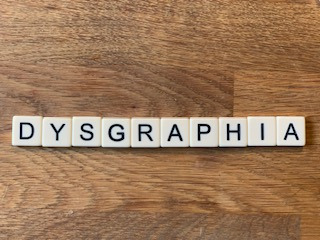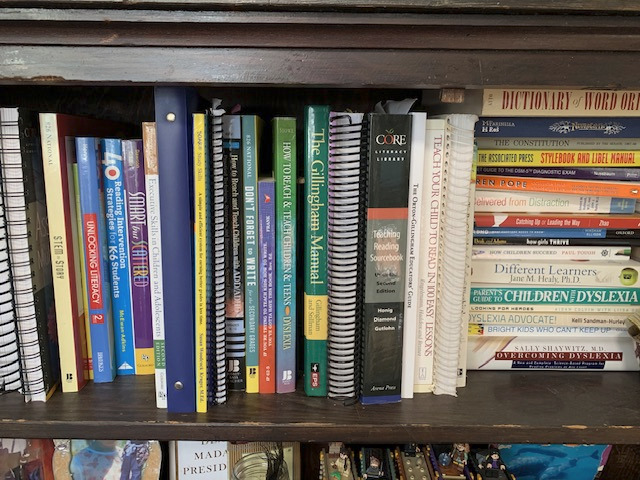Dysgraphia
The National Center for Learning Disabilities(NCLD) identifies Dysgraphia as "a learning disability associated with writing. Individuals with dysgraphia may make grammar and spelling mistakes, produce writing that lacks structure and clarity, and find it challenging to form letters neatly. This condition can hinder effective communication through written expression." Diagnostic and Statistical Manual of Mental Disorders 5th edition" (DSM-5-TR), lists dysgraphia under the specific learning disorder category, along with Dyslexia and other language based learning disorders.
Contact me if you're looking for support for your student with dysgraphia.


Dysgraphia at a Glance


Signs of Dysgraphia
"Diagnostic and Statistical Manual of Mental Disorders 5th edition" (DSM-5-TR), lists dysgraphia under the specific learning disorder category.
Signs of Dysgraphia include motor and cognitive issues.
Motor issues can include:
Dysgraphia impacts word formation (writing & typing)
Struggles with letter formation, consistent size, spacing, place on page or line
Struggles with consistent pencil grip, holding it awkwardly or tightly often contributing to writing fatigue.
Trouble with spelling and grammatically correct sentences
Writing clearly enough to read back later
Cognitive Issues that people with dysgraphia may face include:
Difficulties with writing mechanics, like spelling, grammar, punctuation, and sentence structure
Trouble organizing their writing — they might have great ideas, but have a hard time getting them down onto paper in a coherent, structured way
Dysgraphia may correspond with challenges with written expression (ordering and expressing ideas)
Written Expression Skills include
Reading comprehension
Transcription
Sentence construction
Genre and content knowledge
Planning, revising, and editing
Self-regulation
Dysgraphia may also accompany other learning disabilities like dyslexia and/or ADHD.
*The Pocket Guide to the DSM-5 Diagnostic Exam, Abraham M. Nussbaum, M.D., 2013 American Psychiatric Association
Books on Dysgraphia
Smart but Scattered: The Revolutionary "Executive Skills" Approach to Helping Kids Reach Their Potential and other titles by Peg Dawson and Richard Guare
Teaching Students with Dyslexia, Dysgraphia, OWL LD, and Dyscalculia Second Edition, New edition by Virginia W. Berninger Ph.D. , Beverly J. Wolf M.Ed. , Vincent C. Alfonso Ph.D.
Helping Your Child with Language-Based Learning Disabilities: Strategies to Succeed in School and Life with Dyslexia, Dysgraphia, Dyscalculia, ADHD, and Processing Disorders by Daniel Franklin PhD (Author), Louis Cozolino PhD
The Gillingham Manual: Remedial Training for Students With Specific Disability in Reading, Spelling, and Penmanship Hardcover by Anna Gillingham, Bessie W. Stillman




Common Accommodations
Using a pencil grip to help them hold the pencil correctly and comfortably
Using graph paper for ALL writing assignments. This helps organize thoughts and work on the page.
Using lined paper with raised lines. This provides sensory feedback to help build sensory motor integration while learning how to organize written work on a page. (Raised line composition books and raised line notebook paper can be found on Amazon.com)
More time for writing assignments, homework, and tests
Reduced level of class and homework (i.e. 10 spelling words vs. 20)
Getting notes from the teacher
Using a recorder or speech-to-text tools for note-taking
Audiobooks (Bookshare, Learning Ally)
Dictation software (Google, Dragon, CoWriter)
Oral testing (vs. written responses)
Check out the Dyslexia Toolkit from the National Center for Learning Disabilities. Most of it is information you may be very familiar with, but I find the accommodations section and the interview with Ben Foss worth sharing and applicable to students with Dysgraphia.
The Sagacious Dyslexic ©2026
Christine Strena, Educational Therapist, ET/P

